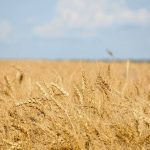Staff / Two Manitobans were recipients of awards at the recent Manitoba North Dakota Zero Tillage Association in Bismarck, South Dakota. John Heard, a soil fertility specialist with Manitoba Agriculture, Food and Rural Initiatives received the non-farmer-of-the year award for his work over the past 20 years in helping farmers understand the agronomy related to



